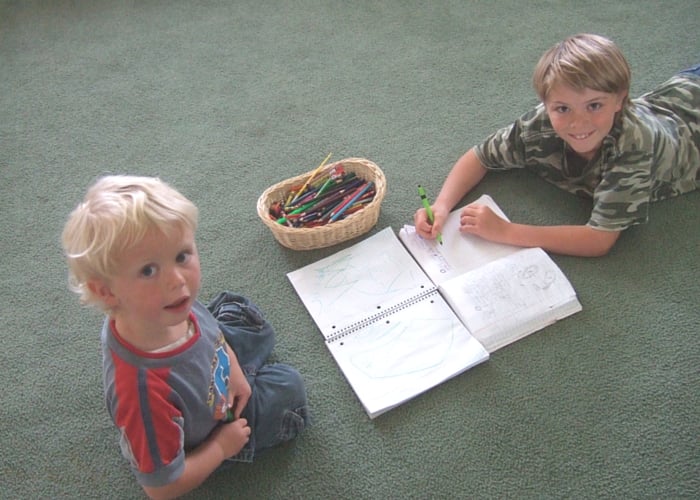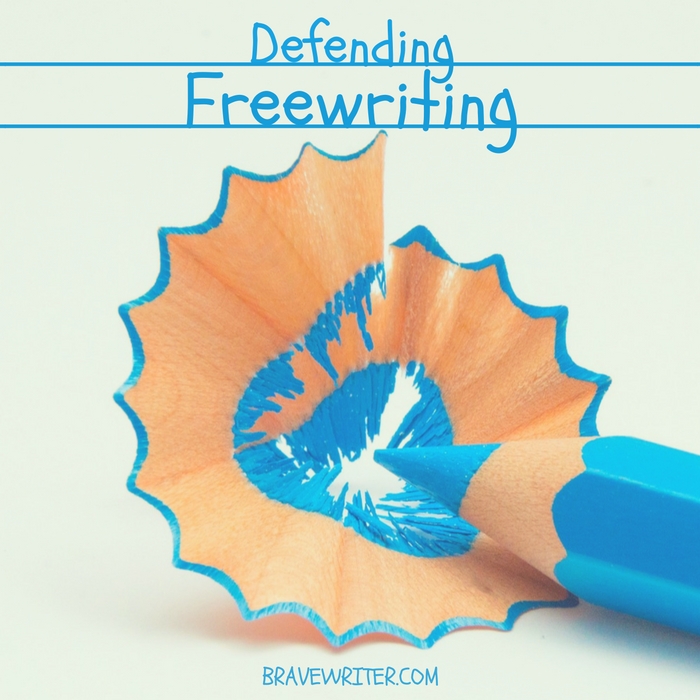The following is posted on the Brave Writer public forums. I loved it! Such a great example of how it’s supposed to work. 🙂
Today, I wanted my nine year old to really get into telling a story so rather than bog him down with the handwriting, I figured I would type for him while he dictated his story.
At the breakfast table this morning, we developed a character. I started off by saying the character was a boy. Then he added a detail about the character, then I did, and so on until we had quite a description going of this kid who lives in a jungle and has a pet monkey.
Then this afternoon, I grabbed my laptop and we hit the couch and curled up with blankets and pillows for him to “write” his story. I started him off with the typical “One day…” and he took it from there.
It was a bit of a struggle to begin with but then he was cruising and had so many thoughts flying out of his mouth. After I had typed a whole page, he said he was out of ideas but the story was at a cliffhanger moment actually so I told him that was enough and we could call it Chapter One.
He was so excited by the whole process. He has been running around all afternoon with his story that we printed off. He even decided to start a new club with his 6 year old sister called “The Story Club.” He asked if he could use my laptop and they both sat at the kitchen table while he guided her through the process of developing her own character. He typed while she dictated. Now, he can’t really type so this was a long laborious process but he was not deterred. My daughter lost interest before he did which I was surprised at as he had to do the typing. So he saved her character and I have a feeling they will come back to it another day.
I’m looking forward to him continuing his story and having fun with his imagination and words!


























